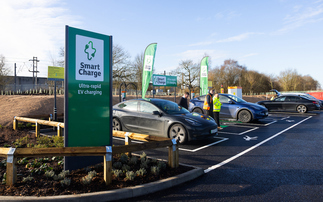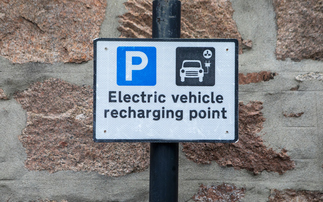Head of Solution Sales at Centrica Business Solutions, Louis Burford, outlines the potential potholes for Electric Vehicle adoption
The success of the transition to an electrified transport infrastructure will depend on three critical factors. The first is the ability of vehicle manufacturers to meet demand, the second is access to safe, swift, reliable charging points and the third is meeting the additional power demand.
On the first point, so far so fairly bad. Auto Trader says a lack of availability of electric vehicles is sending prices rocketing, with electric car valuations growing 11 per cent, compared to just 1.5 per cent for the whole of the market.
Demand is growing fast, driven by a desire by both businesses and consumers to be more sustainable and to save money. Research carried out by Centrica has shown that more than 75 per cent of businesses are planning to introduce EVs into their fleets. The figure closely aligns with the number of consumers also considering EVs. According to Auto Trader, 71 per cent of car owners said they'd consider buying an electric vehicle as their next car, up from just 25 per cent two years ago.
Charging safely?
Point two is equally contentious with lack of access to charging points proving a further challenge. According to analysis by Electrical Safety First, the growth rate of licensed plug in vehicles is almost six times as fast than that of public charging point locations in the UK, over the last five years.
As a result, the charity says drivers are opting for ‘highly dangerous alternatives at home'.
Three-quarters of those who resort to charging from their home mains supply using a domestic extension lead even admit to "daisy-chaining" - the risky practice of using multiple extension leads plugged into one another - to reach their car. Over half of those even admitted to leaving cables running to their vehicle in the rain.
The right infrastructure
The adoption of electric vehicles is no longer a question for tomorrow, but what's clear is that the existing charging network is not up to the task in terms of scale both today and in the future.
For businesses, the transition to EV is a big opportunity to become cleaner and more efficient. However, less than half of the businesses planning an EV rollout (43 per cent) have considered the implications of what that could mean in terms of their energy demand.
That third challenge is huge. To add some context, depending on your mileage, EV charging can see consumers double their usual household electricity usage. Estimates as to what this may mean in terms of the grid have come in as high as an additional 18GW of additional power by 2050 in the UK alone. To put this in to perspective, that's an extra 30 per cent on top of today's peak demand - which would require dozens of newly built power stations.
Last month Centrica and Ford partnered to offer new electric vehicle services in the UK and Ireland as the UK's biggest selling car manufacturer accelerates its electrified vehicle plans in Europe.
Under the planned partnership, Ford will work exclusively with Centrica to deliver a dedicated home charging installation service and EV tariffs from British Gas and Bord Gáis Energy that will allow Ford customers to benefit from lower energy prices for overnight charging. Centrica will also make its installation service available to support hundreds of Ford dealerships across the UK and Ireland. While Centrica Business Solutions has launched a package of solutions for large businesses that includes new solar and battery storage facilities to help meet increased onsite power demand.
We see a future where customers combine solar and battery storage facilities alongside smart energy algorithms that allow them to buy and sell energy in the smartest, most efficient way.
Such a combination of products will allow businesses to meet the additional power demands of new charging points by generating, storing and managing their own power on site. Combined with smart charging and innovative EV tariffs, that encourage charging at less expensive times, should help allay concerns over grid demand.
Electric vehicles are key to decarbonising transport and improving air quality. By demonstrating leadership in providing EV charging infrastructure and transitioning fleet vehicles to EV, businesses and public bodies can play a major role in reducing global greenhouse gas emissions and inspire wider EV adoption across society.
For more information on EV enablement please visit Centrica Business Solutions.








